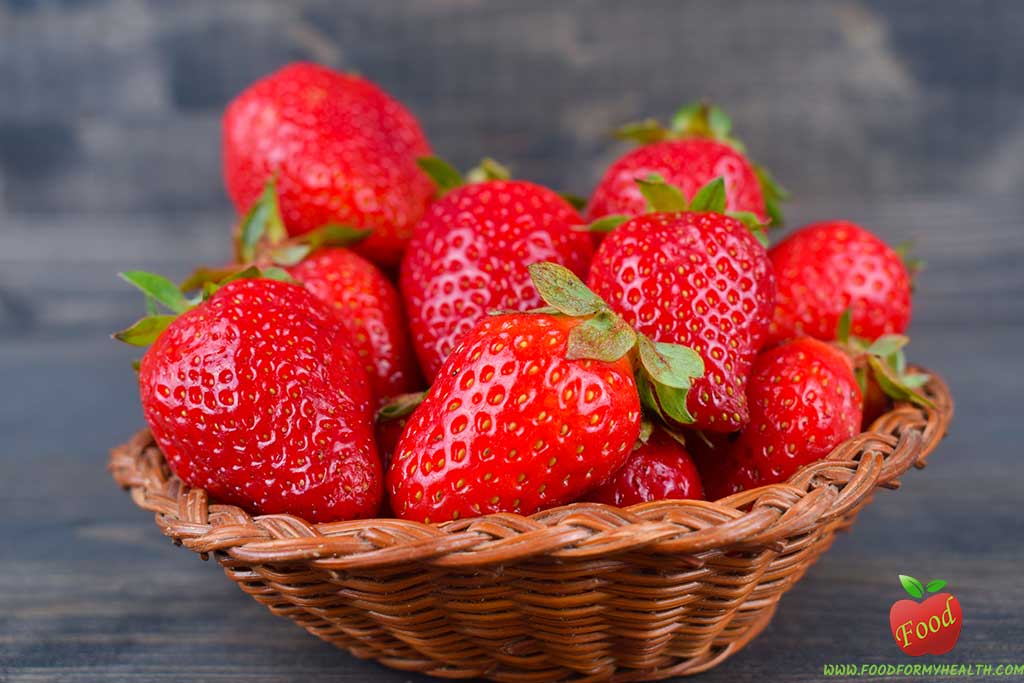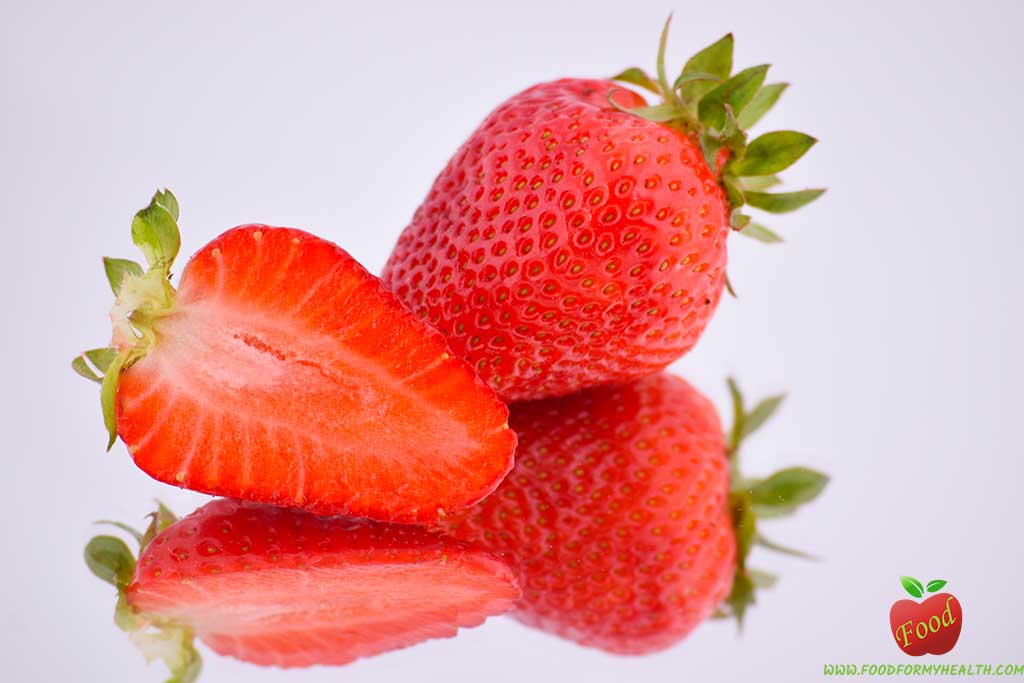10 Amazing Health Benefits of Strawberry
THE STRAWBERRIES are the most antioxidant fruit grown around the world today and they are a good example of the symbiosis of two worlds. This symbiosis is from the European strawberry which is smaller, daintier, and more aromatic and the American variety, which is larger and more resistant, but less sweet. Strawberries are grown in sandy temperate regions around the world. They are also found growing wild in mountainous regions of Europe and America.

The antioxidant action of strawberries neutralizes the so called free radicals that oxidize lipoproteins. This oxidation process, if not checked, results in cholesterol deposits on arterial walls and arteriosclerosis. Strawberries are particularly appropriate for those working to improve blood circulation in the arteries.
Strawberry nutrition facts and health benefits
The strawberry is among the fruits with the lowest calorie content (30 kcal/100 g), lower even than melons (35 kcal/ 100 g), or watermelon (32 kcal). Its protein, fat, and sodium content is also very low. Sugars are the most significant nutrient in strawberries, together with modest amounts of vitamin C, folates, potassium, and iron, which amount to about 5% of their weight.
Strawberries are a good source of dietary fiber: One hundred grams supply 2.3 g of fiber, which represents about one tenth of RDA (Recommended Dietary Allowance) for an adult.
Although strawberries contain a variety of organic acids, such as salicylic acid and oxalic acid, their metabolic effect is highly alkalizing.
The color of strawberries comes from vegetable pigments known as ANTOCYANIDINES, which are similar to bioflavonoids. The antocyanidines found in certain fruits such as strawberries act as powerful antioxidants, in addition to reducing the synthesis of cholesterol in the liver.

A study carried out at Tufts University in Boston (USA) demonstrated that strawberries have the greatest antioxidant capacity of any fruit, followed by plums, oranges, and grapes. The antioxidant capability of strawberries is due primarily to their vitamin C, bioflavonoid, and antocyanidine content.
Strawberries composition, as well as their antioxidant and alkalizing properties, makes them particularly indicated in the following cases:
Arteriosclerosis: Because their great antioxidant capability, which neutralizes the effect of free radicals, strawberries are an effective means of avoiding arteriosclerosis (the depositing of cholesterol on artery- walls, which later thicken and become narrow). Strawberries also contribute to arterial health by their lack of fat and sodium, and their richness in potassium, a mineral that prevents hypertension.
Eating strawberries regularly during the spring and the first months of summer helps prevent arteriosclerosis and avert its further development. Strawberries should be included in the diet of those who have suffered a heart attack or angina pectoris, as well as when there is poor circulation to the cerebral arteries or to those of the lower limbs.
Excess uric acid: Strawberries are diuretic (they increase urine production) and facilitate the elimination of uric acid with the urine because of their alkalizing effect. Because of this, strawberries are recommended in cases of gout and erratic arthritis.
Constipation: Because of their richness in soluble vegetable fiber, strawberries facilitate passage of the feces through the intestines. They also decongest venous circulation in the portal system (veins in the bowel), thus they are useful in cases of hemorrhoids, ascites (fluid in the abdomen), and liver disorders such as chronic hepatitis and cirrhosis.
Strawberries have two potential side effects:
Allergic reactions due to their salicylic acid content. This usually manifests itself as itching and skin rash. Individuals who are allergic to aspirin tend to be allergic to strawberries as well, and vice versa
Kidney stones: Individuals with a tendency to form oxalic kidney stones should avoid eating large quantities of strawberries. This is because of their oxalic acid content, which when eliminated through the urine forms calcium oxalate, an insoluble substance that forms calculi (stones). However, there are investigators believing that moderate strawberry consumption poses no risk to those with kidney stones.
Preparation and Use
- Fresh: Fresh strawberries should be washed just before eating. They go well with apples, orange juice, grains, and yogurt.
- Strawberry shake: This is made by blending strawberries with orange juice, nonfat milk, or soy beverage.
- Jam and compote: Strawberries prepared in this way retain almost all of their nutrients and active elements, although they loss vitamin C. They represent a means of having them available out of season, with the drawback, however, of a very high sugar content (around 50%).
- Frozen: Frozen strawberries are very popular since they make the fruit available year-round and virtually everywhere frozen strawberries tend to contain less added sugar (0%-20%) than jam, and retain most of their nutrients and active elements, including vitamin C.
Pin Us On Pinterest

Related: 6 Interesting facts about strawberries

